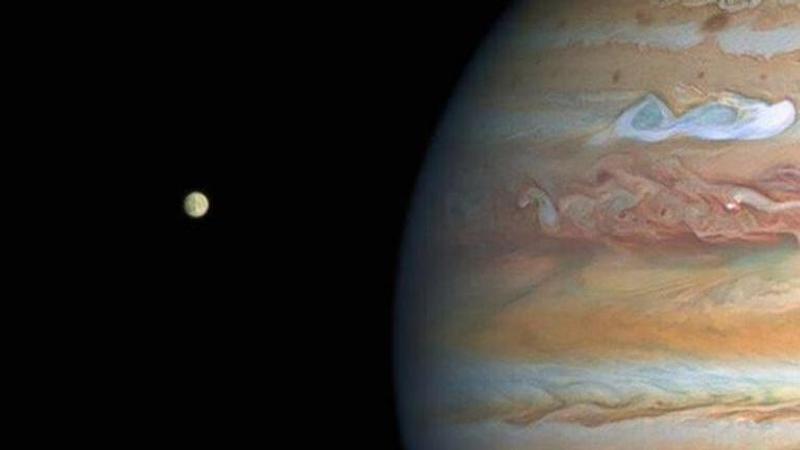Published 23:58 IST, January 29th 2022
European Space Agency JUICE mission 2023: Here's all about Jupiter's life-hunting venture
ESA says that Jupiter's moon Europa will steal most of the mission spotlight owing to the massive ocean that sits beneath its icy crust.

The European Space Agency (ESA) is preparing for its upcoming Jupiter Icy Moons Explorer (JUICE) mission that will launch in 2023 to peer into the surfaces of Jupiter's Moons. Our solar system's largest planet has a total of 79 Moons and the JUICE spacecraft, which is currently being developed will primarily focus on three Moons- Europa, Ganymede, and Callisto. However, ESA says that among the trio, Europa will steal most of the spotlight owing to the ocean that sits beneath its icy crust. The aforementioned Moons, along with Io – the most volcanically active place in the solar system, are called Galilean Moons, as they were first observed by Italian astronomer Galileo in the early 17th century.
Europa, the poster child of Galilean Moons
The reason why Europa's oceans are of such great interest is that astrobiologists believe that every living thing on Earth needs water to survive. While admitting that the same is not necessary for alien life, they say that looking for life signs in water is an excellent place to start. Europa is known to have an ocean that contains more liquid water than all of Earth’s seas, lakes, and rivers combined, says ESA.
Next up is Callisto, which will host the JUICE spacecraft on 12 occasions. The spacecraft will make the highest number of flybys on this planet, as opposed to only two across Europa. Being the outermost of the four Galilean moons, Callisto experiences the least amount of Jupiter's gravity and radiation and scientists suspect that this too has a 200km-deep ocean beneath its surface.
Astronomers also have their eyes on Ganymede, which according to professor Michele Dougherty from the Imperial College London, is "the most exciting body in the Solar System". The JUICE spacecraft will orbit Ganymede for eight months and will help scientists study its magnetism, Ganymede's most exciting feature. Interestingly, the spacecraft under this mission will become the first to orbit a Moon other than the Earth's. Another attractive feature of Ganymede is its sub-surface ocean, which is said to have more water than on Earth. It is worth noting that this Moon of Jupiter is bigger than Pluto and Mercury, making it bigger than any other moon.
(Image: Twitter/@esascience)
Updated 23:58 IST, January 29th 2022



